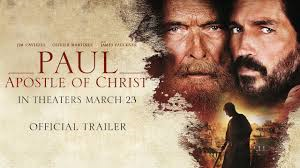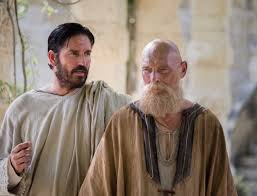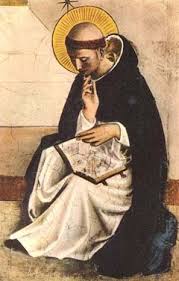SHORT TAKE:
Moving and informative portrayals of Saints Paul and Luke in the last days before St. Paul's execution.
WHO SHOULD SEE IT:
Everyone…eventually! But be advised that mid to younger teens should be taken with parental discretion because of the examples of Roman brutality and persecution against the Christians.
LONG TAKE:
Saint Dominic once declined an offer to go with his fellow monks for an outing in order to pray the rosary. Upon his friends' return, Dominic was still meditating. When they asked how much longer he could possibly be praying one rosary he replied he had not gotten past the Our Father. Upon exclaiming their surprise that he would spend so much time on one prayer he corrected them, explaining, that – no I have not gotten past being overwhelmed by the first two words – "Our Father".
Paul, Apostle of Christ is like that.  The Bible is a vast library of stories, historical anecdotes, poetry, parables, love songs, love stories and wisdom.
The Bible is a vast library of stories, historical anecdotes, poetry, parables, love songs, love stories and wisdom.  Each line contains an infinity of grace and one can spend lifetimes contemplating even the smallest part. Paul, Apostle of Christ invites the audience to join in just a few of the final days of St. Paul (James Faulkner – lifelong Angelican who started out as an in-demand chorister and soloist at the Royal College of Church Music at Addington Palace and who has graced the big and small screens in everything from
Each line contains an infinity of grace and one can spend lifetimes contemplating even the smallest part. Paul, Apostle of Christ invites the audience to join in just a few of the final days of St. Paul (James Faulkner – lifelong Angelican who started out as an in-demand chorister and soloist at the Royal College of Church Music at Addington Palace and who has graced the big and small screens in everything from  Zulu Dawn to
Zulu Dawn to 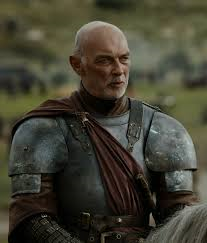 Game of Thrones and the voice of Severus Snape for video games) as he is visited by his disciple, St Luke (James Caviezel – devout Catholic and talented actor as Jesus in
Game of Thrones and the voice of Severus Snape for video games) as he is visited by his disciple, St Luke (James Caviezel – devout Catholic and talented actor as Jesus in 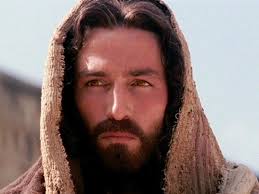 The Passion of the Christ,
The Passion of the Christ, 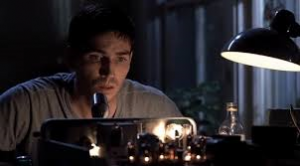 Frequency, and The Count of Monte Cristo) .
Frequency, and The Count of Monte Cristo) . 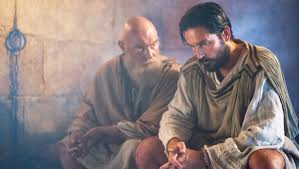
St. Luke is so determined to glean even the tiniest bit more wisdom from his mentor in Christ, that he is willing to sneak INTO Mamertine Prison – a Roman dungeon, uninvited, to get it. This is Rome, in the days of the Emperor Nero, when Christians were thrown to wild animals in the Circus and burned alive to light the streets of Rome. 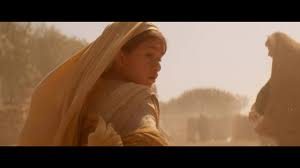 This is the period after which Nero accused the Christians of burning down half of the city and
This is the period after which Nero accused the Christians of burning down half of the city and 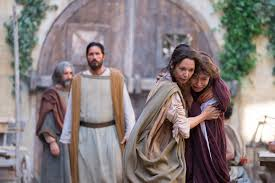 persecutions were so rampant that even the soldiers questioned (very quietly) the public relations wisdom of the extremes to which their Emperor was expressing his hatred of Christians.
persecutions were so rampant that even the soldiers questioned (very quietly) the public relations wisdom of the extremes to which their Emperor was expressing his hatred of Christians.
A small band of Christians live quietly on the outskirts of the city, living on the knife's-edge of discovery, reluctant to abandon Rome to the darkness into which it has plunged. 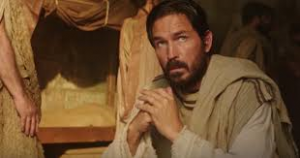 Luke travels back and forth between the two worlds –
Luke travels back and forth between the two worlds –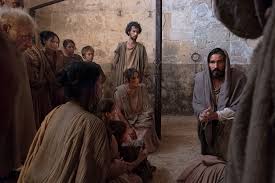 the Christian community and the dungeon of St. Paul – the conduit of faith and hope each recipient of which sustains each other. He brings encouragement to St. Paul in his sufferings, assuring him that the Christian teachings will be passed on as The Acts of the Apostles even as St. Paul faces death.
the Christian community and the dungeon of St. Paul – the conduit of faith and hope each recipient of which sustains each other. He brings encouragement to St. Paul in his sufferings, assuring him that the Christian teachings will be passed on as The Acts of the Apostles even as St. Paul faces death. The Christian community bears witness to the sufferings of fellow Christians as well as nurturing, copying, and
The Christian community bears witness to the sufferings of fellow Christians as well as nurturing, copying, and transporting the wisdom of St. Paul in the papyrus transcribed writings which will one day be known as letters from St. Paul to Galatians, Corinthians, Romans, Phillipians and Thessalonians, among others.
transporting the wisdom of St. Paul in the papyrus transcribed writings which will one day be known as letters from St. Paul to Galatians, Corinthians, Romans, Phillipians and Thessalonians, among others.
No doubt, some dramatic license has been given to this story – there is no definitive evidence, for example, of how St. Paul died but it is accepted Christian tradition based on history and logic that he was beheaded. But the essence of who St. Paul was and his impact and influence on the Jews, Gentiles and even Romans at the time is portrayed by director Andrew Hyatt with dignity and love of the subject matter.
For example, a subplot involving St. Luke's healing of the Roman prison commander's daughter using his natural gifts, (St. Luke is one of the patron saints of doctors), may or may not have happened but the incident as portrayed in the movie is a beautifully dramatic vehicle to demonstrate the charity of the followers of Christ, as well as the influence that the Christian exercise of love had on even their jailers. It is also a clever construct for dialogue between 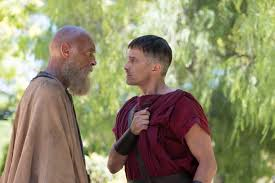 St. Paul as representative of Christ and Mauritius as a representative of the Roman Empire, and how, utimately, the Roman Empire's future generations would eventually turn, in its sickness, to Christianity, for healing, not just of its body but its soul.
St. Paul as representative of Christ and Mauritius as a representative of the Roman Empire, and how, utimately, the Roman Empire's future generations would eventually turn, in its sickness, to Christianity, for healing, not just of its body but its soul.
Paul's agony of regret for his former life as a fellow sinner, as 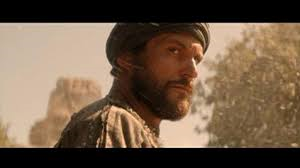 Saul the persecuting Pharisee, (Yorgos Karamihos – Theo from Durrells in Corfu), is also reviewed in both
Saul the persecuting Pharisee, (Yorgos Karamihos – Theo from Durrells in Corfu), is also reviewed in both 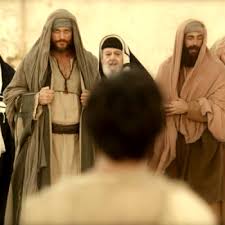 Paul's tormented dreams and in the ecstacy of grace which he understands God so generously bestows on all of mankind.
Paul's tormented dreams and in the ecstacy of grace which he understands God so generously bestows on all of mankind.
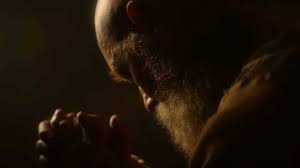 Paul, Apostle of Christ is an inspiring moment in the vast storehouse that is the brilliant breathing lighthouse of Christianity in this darkened world; a glance at the Judeo-Christian theology and mankind's relationship with the Trinity of God, His Divine Son, and the Holy Spirit. And time spent contemplating this profound example of God as Our Father of forgiveness and mercy is more than worth our time.
Paul, Apostle of Christ is an inspiring moment in the vast storehouse that is the brilliant breathing lighthouse of Christianity in this darkened world; a glance at the Judeo-Christian theology and mankind's relationship with the Trinity of God, His Divine Son, and the Holy Spirit. And time spent contemplating this profound example of God as Our Father of forgiveness and mercy is more than worth our time.
